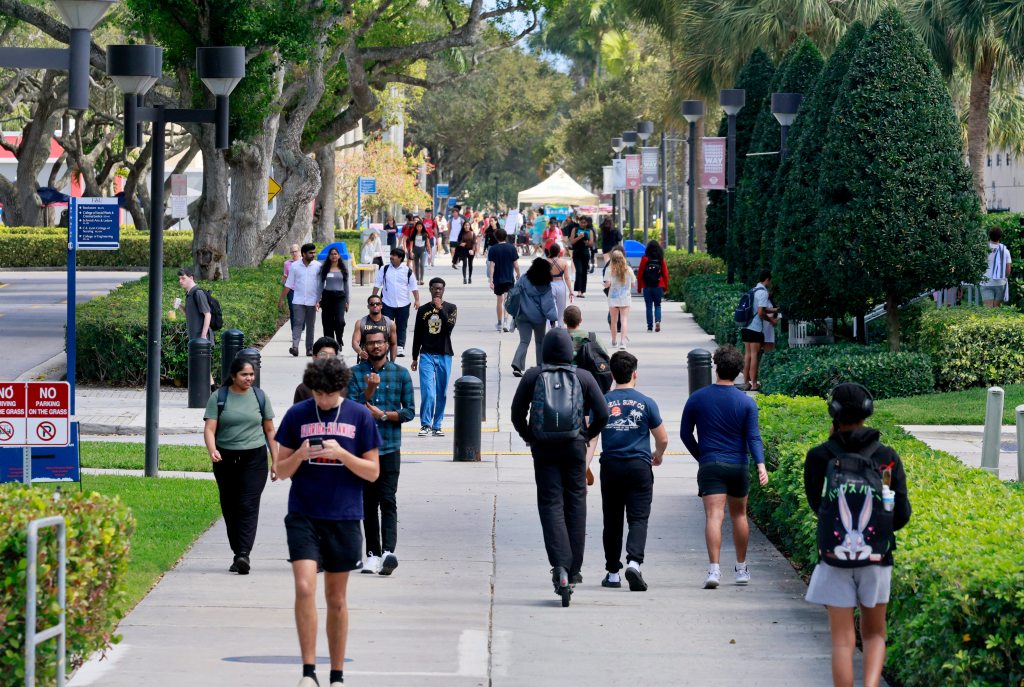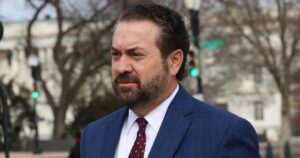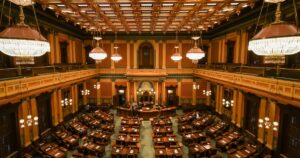New Wave of Republican Politicians Tapped for Leadership Roles in Florida Colleges
Republican political figures are increasingly becoming a favored choice for presidential roles at top colleges and universities in Florida. This trend is reshaping the landscape of higher education leadership in the state, with significant appointments expected in the near future.
By early next week, Florida Atlantic University (FAU) may announce former House Majority Leader Adam Hasner as their new president, choosing from three remaining finalists. Meanwhile, media reports suggest that Lt. Gov. Jeanette Nuñez will be appointed as interim president of Florida International University this Friday.
Recently, Torey Alston, who previously served under Gov. Ron DeSantis, was confirmed as the new president of Broward College on January 31. His appointment follows several similar hires in the last two years, including four former Republican state legislators and one ex-U.S. senator, Ben Sasse, who briefly led the University of Florida before resigning.
Supporters of this trend argue that political leaders bring valuable skills in fundraising and legislative relations, crucial for securing school funding from Tallahassee. Critics, however, contend that prioritizing political connections over academic qualifications could undermine the quality of higher education in Florida. As State Sen. Tina Polsky, D-Boca Raton, expressed, “It’s very alarming. I don’t understand why politics has so much to do with education. There shouldn’t be a political litmus test for board members or for presidents, and that’s what it entirely has become.”

Faculty and students are also expressing concern. United Faculty of Florida, a statewide faculty union, issued a statement emphasizing that such appointments could jeopardize “academic freedom, faculty governance, and the long-term reputation of Florida’s higher education system.”
Governor DeSantis’s efforts to eliminate what he perceives as “woke indoctrination” in academia have contributed to this political shift. In 2023, one of his initial actions was to overhaul the board at New College of Florida in Sarasota, replacing the president with his ally Richard Corcoran.
Political science professor Sean Foreman from Barry University noted, “Conservative lawmakers saw many professors advocating for political positions and universities pushing for diversity. They thought colleges and universities should be focused on the basics, educating students and preparing them for the workforce.”
This phenomenon is not entirely unprecedented. Betty Castor, a former Democratic state senator, led the University of South Florida in the 1990s, while former Republican Lt. Gov. Frank Brogan and John Thrasher, a former House speaker, have also held prominent university positions.

The decision at FAU lies between Hasner, Michael Hartline, and John Volin. Hartline is a business dean at Florida State University, while Volin serves as an executive vice president and provost at the University of Maine. Despite Hasner’s non-traditional academic background, many insiders predict he will be the final choice. Polsky remarked, “It’s already baked in that Adam Hasner is going to get FAU job, and there are two very qualified applicants who have tremendous academic experience, and yet we already know the outcome.”
In a statement, Hasner defended his candidacy by highlighting his non-academic experience as beneficial for modern university leadership. He stated, “While my resume may not reflect the typical career in academia, I believe this is an asset in today’s evolving landscape of university leadership.”
Hartline was unavailable for comment, while Volin remains unfazed by the political dynamics, stating, “I’m bringing my years of experience, and so I can only speak for myself. There’s a lot of great examples of folks out there. They have a political past.”
According to Susan MacManus, a retired political science professor, the emphasis on fundraising skills is not new. “The bottom line is today’s university presidents are first and foremost fundraisers. It’s really shifted since I was an early professor way back when,” she noted.
Broward College’s Board of Trustees cited Alston’s political expertise as a significant factor in his hiring decision, as it may aid in securing legislative funding. Alston’s previous roles include serving as the executive director of a Greater Miami Expressway Agency and chief of staff for the Florida Department of Transportation.
“To the extent that Mr. Alston has experience with the legislative process, that was absolutely critical to our decision-making,” said Alexis Yarbrough, chair of the college’s Board of Trustees.






